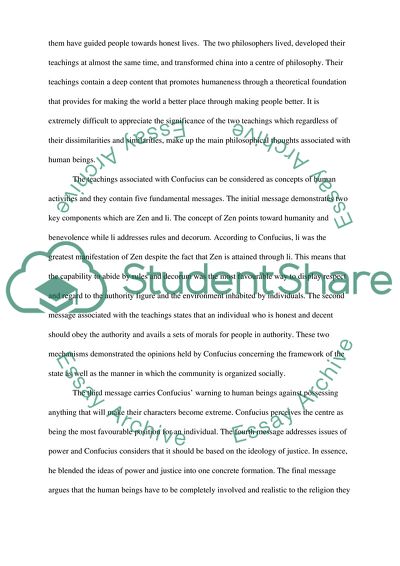Cite this document
(“Comparison between Confucius and Lao Tzu Research Paper”, n.d.)
Retrieved from https://studentshare.org/philosophy/1662182-chinese-thoughts
Retrieved from https://studentshare.org/philosophy/1662182-chinese-thoughts
(Comparison Between Confucius and Lao Tzu Research Paper)
https://studentshare.org/philosophy/1662182-chinese-thoughts.
https://studentshare.org/philosophy/1662182-chinese-thoughts.
“Comparison Between Confucius and Lao Tzu Research Paper”, n.d. https://studentshare.org/philosophy/1662182-chinese-thoughts.


